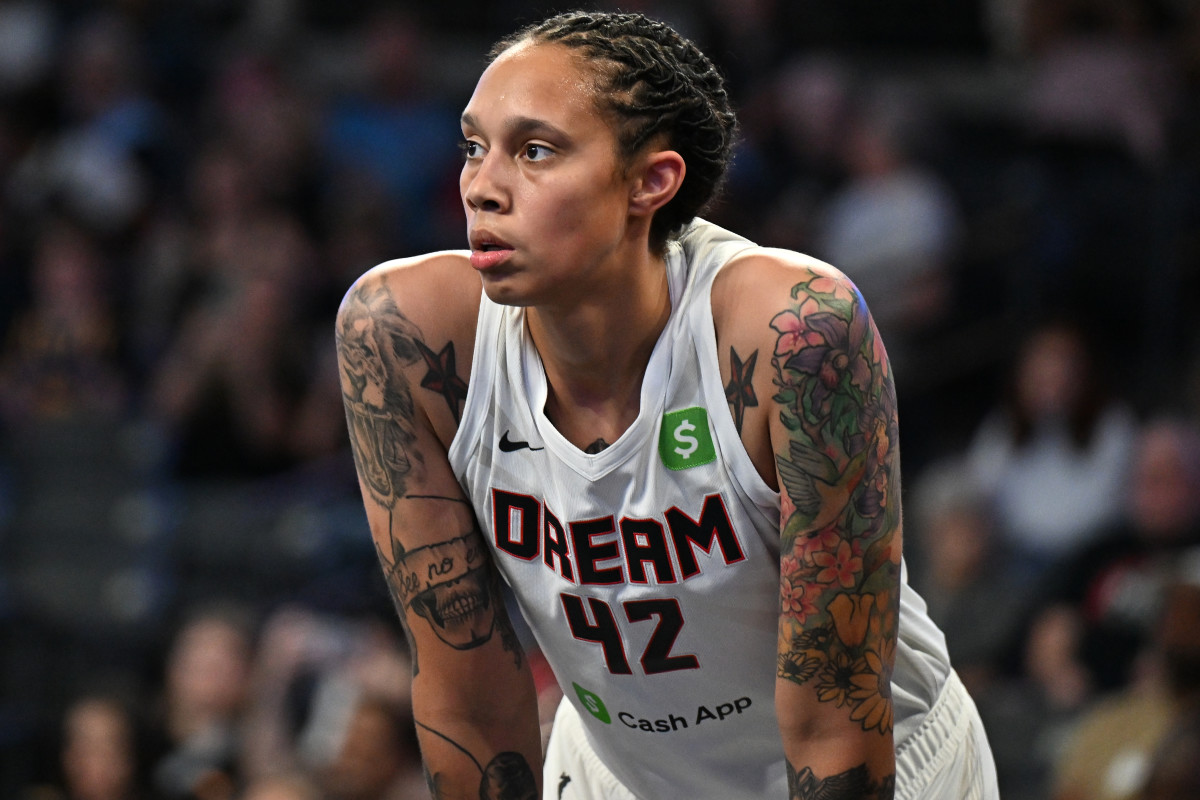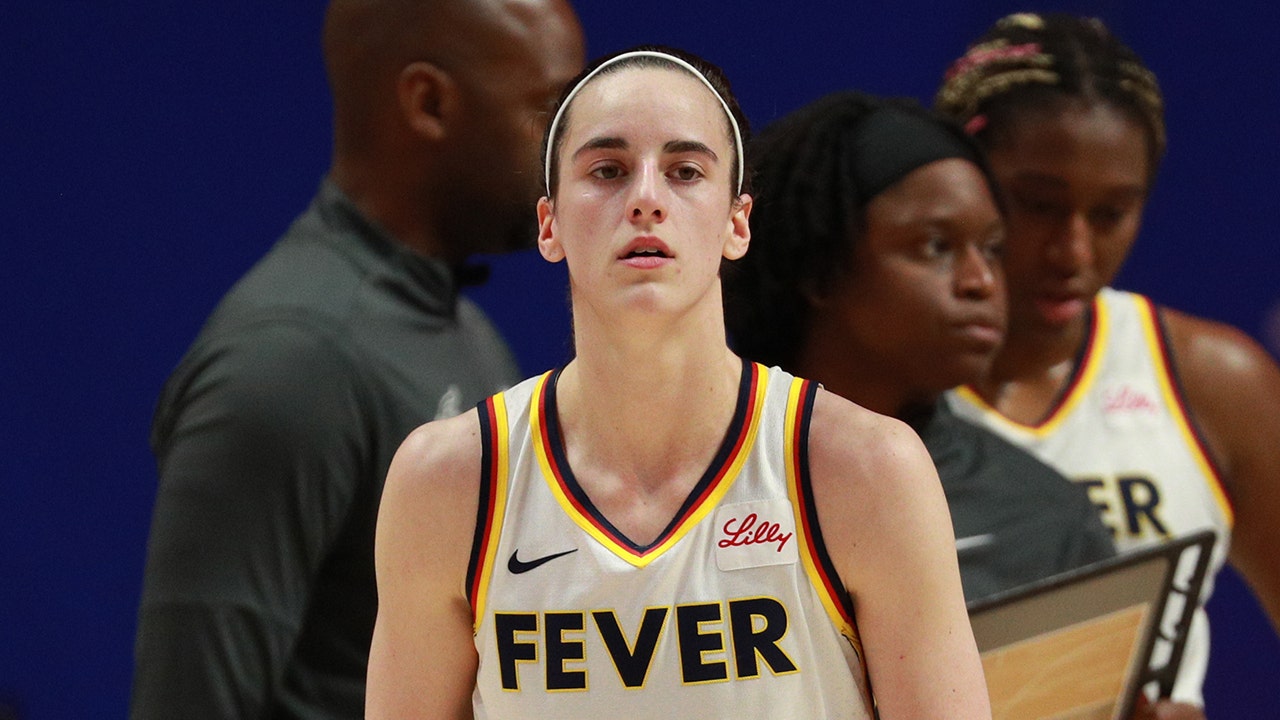The Women’s National Basketball Association is currently experiencing a renaissance, a golden era of unprecedented growth fueled almost single-handedly by the arrival of one transcendent star: Caitlin Clark. Arenas are sold out, viewership ratings are shattering records, and a new generation of fans is passionately engaged. But beneath this shimmering surface of success, a dark and bitter civil war is reportedly raging. According to a torrent of explosive new claims, Caitlin Clark has reached her breaking point and is pulling back the curtain on a toxic culture of bullying, favoritism, and secrets, with league veteran Brittney Griner positioned squarely at the center of the storm.

For months, fans have watched with growing unease as Clark has endured a relentless physical pounding on the court that seems to extend far beyond typical rookie treatment. She’s been shoved, elbowed, and tripped, often with no call from the referees. But the conflict escalated dramatically during a fiery matchup when cameras allegedly caught Brittney Griner shouting what many believe was a racial slur—”effing white girl”—at Clark after fouling out of the game. The clip went viral instantly, igniting a firestorm of outrage. Fans and commentators, including prominent voices like Riley Gaines, demanded accountability, pointing out the glaring hypocrisy: if Clark had uttered a similar slur toward Griner, the league’s reaction would have been swift and punitive, likely ending in a lengthy suspension and a career-damaging media frenzy.
Instead, the WNBA’s response was a deafening silence. No investigation was announced. No punishment was handed down. Griner herself brushed off the incident in an interview, claiming she couldn’t remember what she said but was certain it wasn’t a slur. To many, this inaction was proof of a deep-seated double standard, a protective bubble around certain veteran players that allows them to operate by a different set of rules. It confirmed the growing suspicion that the league was willing to sacrifice its integrity to protect its established stars, even at the expense of its brightest new one.

This incident, however, is allegedly just the tip of the iceberg. The narrative circulating with increasing intensity is that Griner’s hostility is rooted in fear. Rumors claim Clark has uncovered a profound secret about Griner, something the league has been desperate to keep hidden. This speculation ties into long-standing online chatter about Griner’s “real identity” and the still-baffling 2022 prisoner swap. The U.S. government traded Viktor Bout, a convicted international arms dealer dubbed the “Merchant of Death,” for Griner’s release from a Russian prison. The trade was widely seen as lopsided, leaving many to wonder what made Griner so uniquely valuable. Now, insiders suggest Clark stumbled upon information related to Griner’s prison backstory and eligibility that could shatter the WNBA’s carefully crafted image. According to these claims, when Griner learned Clark had taken this information to the league’s top executives, the targeted aggression intensified, shifting from on-court trash talk to a full-blown pressure campaign designed to ensure her silence.
The motive behind the broader animosity from other players, as painted by this narrative, is pure jealousy. The “Caitlin Clark Effect” is undeniable; the league is projected to rake in over $1 billion this year, a success story with Clark’s name written all over it. While one might expect gratitude, some veterans have seemingly responded with bitterness. Griner’s alleged comments that the new, energetic crowds are “toxic” and that she misses when the games were “chill and quiet” have been interpreted as the sour grapes of a former headliner who resents being upstaged. She seems to be mourning the loss of a niche league while Clark is busy turning it into a mainstream spectacle—and the envy is palpable.
Faced with on-court abuse, alleged racial slurs, and a league that refused to protect her, Clark has reportedly decided she will no longer be a silent victim. The narrative is that she has become a whistleblower, compiling evidence of the bias, favoritism, and rule-bending that has been allowed to fester. This isn’t just about her personal grievances; it’s about forcing the WNBA to adhere to its own standards of conduct and ensure equal treatment for every player, from rookie to veteran. She is challenging the established hierarchy, a system that has allegedly propped up certain players as heroes while casting newcomers who threaten the status quo as villains.
The WNBA is now at a precarious crossroads. Is this a legitimate crisis of integrity, or merely a firestorm of online rumors? The league’s continued silence only fuels the speculation. By failing to address the allegations against Griner and the apparent double standards in player conduct, the front office appears complicit, giving credence to the idea that there is a truth they are desperately trying to hide. Whether she intended to or not, Caitlin Clark has become the face of a rebellion. She came to the league to play basketball, but she may end up being the one who forces it to confront its own demons, sparking a shakeup that could redefine its future for years to come.
